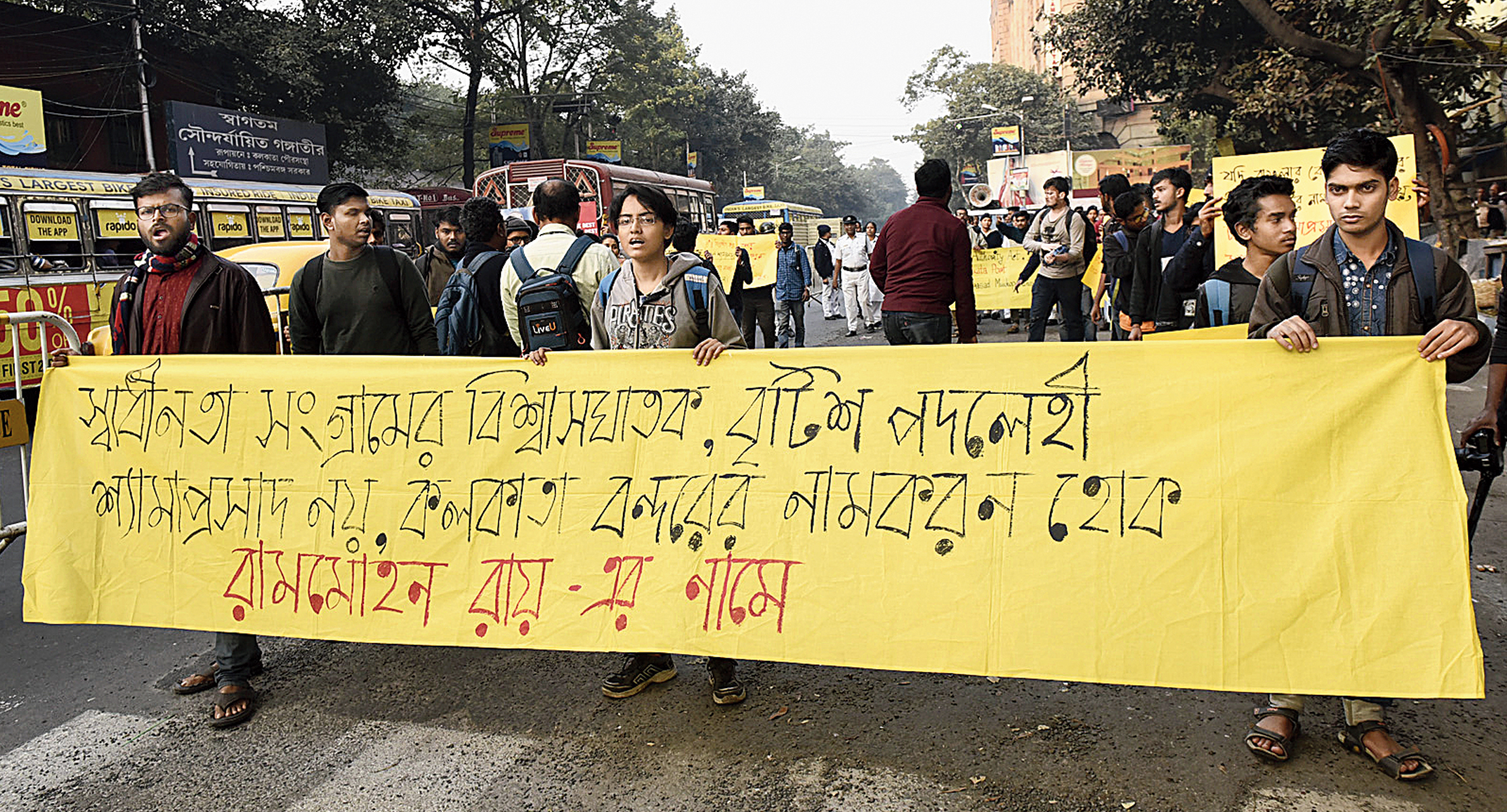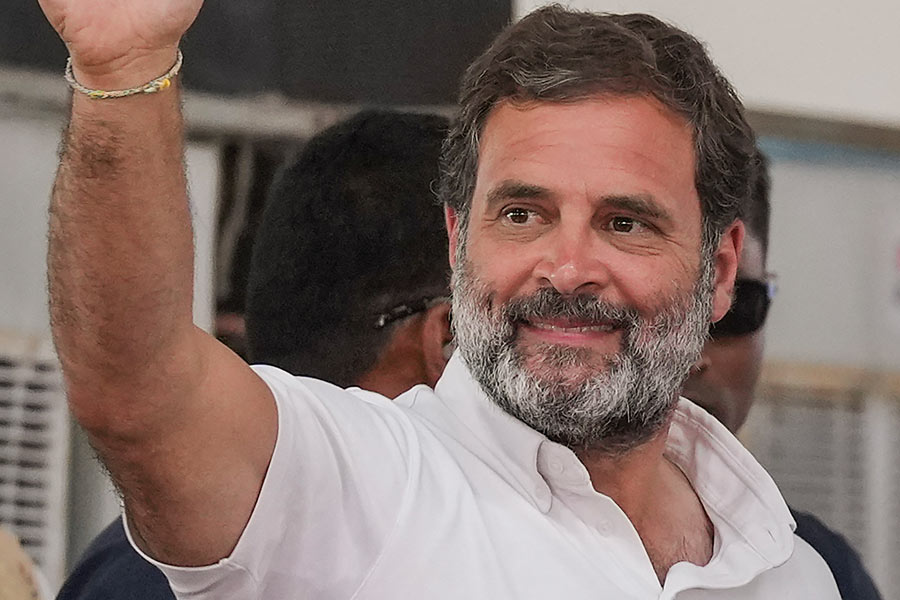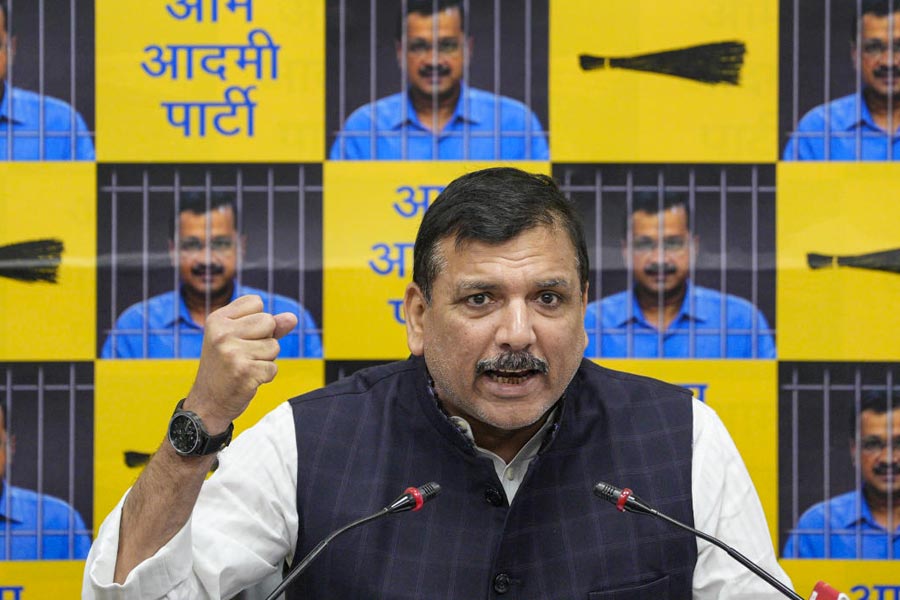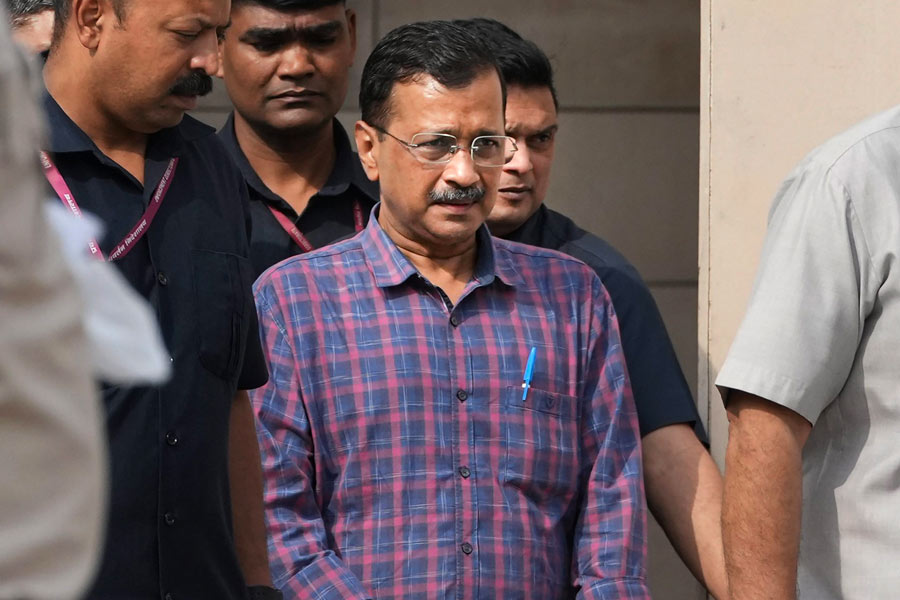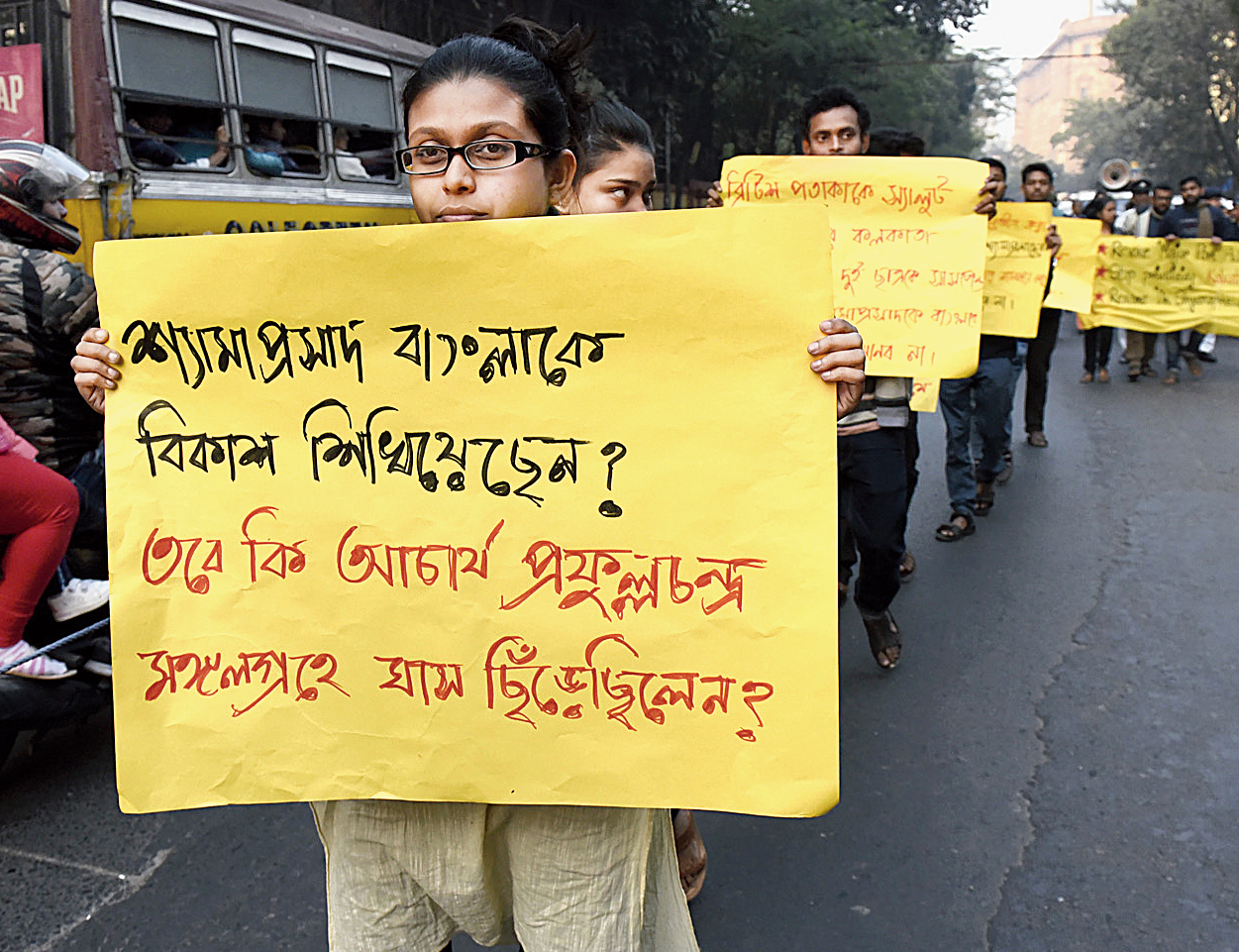
A protester’s placard reads in Bengali: “Syama Prasad taught Bengal development? So did Acharya Prafulla Chandra (Ray) cut grass on Mars? Picture by Sanat Kr Sinha
A group of students marched in Calcutta on Wednesday protesting the Centre’s decision to rename Kolkata Port Trust after “divisive Hindutva icon” Syama Prasad Mookerjee.
If the port had to be renamed, it should have been after Raja Rammohun Roy, who had ushered in liberal thinking and crossed seas at a time few could dream of embarking on a voyage, they said.
Prime Minister Narendra Modi had announced the renaming on Sunday.
The students said Mookerjee had submitted before the Union Jack when India was under occupation.
Debarshi Chakrabarty, who has done MPhil in history from Jadavpur University, cited a chapter from Gautam Chattopadhyay’s book Swadhinata Sangrame Bharater Chhatro Samaj that mentions Mookerjee’s alleged bias towards the British.
In a chapter that refers to the birth of the student outfit Bangiyo Pradeshik Chhatra Federation, Chattopadhyay writes in Bengali: “(The) Bangiyo Pradeshik Chhatra Federation came into existence from an event in 1936…. One of the events that had unfolded around this time had shaken the student community. A wing to provide military training to students — University Training Corps — was constituted in Calcutta University. They would hold a march past on the occasion of the university’s foundation day (January 24). The then vice-chancellor of the university, Dr Syama Prasad Mukhopadhyay, had issued an order that on the day of the march past, the students would have to salute the British flag, the Union Jack.
“The students protested this on the day of the march past and one of the students of Vidyasagar College declined to salute the flag of the Raj. He was immediately whipped. The students of the college erupted in protest. They called a strike immediately. Syama Prasad ordered that two student leaders of the college, Dharitri Ganguly and Umapada Majumdar, be rusticated from both the college and the university.
“The student community of entire Bengal launched a protest against this autocratic diktat. Student strikes spread across Bengal…. The Calcutta University senate was eventually forced to relent in the face of the collective resistance by students, and Dharitri and Umapada returned to their college with their honour restored.”
Gautam Chattopadhyay (1924-2006) was the founder secretary of Paschimbanga Itihas Anusandhan Samsad, which provided a platform for history scholars to publish their papers in Bangla.
Syama Prasad Mookerjee was the VC of Calcutta University from 1934 to 1938.
On Wednesday, Chakrabarty, the former JU student, asked: “How can he be our icon?”
Harvard professor of Oceanic History Sugata Bose told Metro that it was well-established that Mookerjee had a bias towards the British while India was under occupation.
“While Mookerjee was a minister of Bengal Province in 1941-43 under A.K. Fazlul Haq’s coalition government, he had resorted to repressive tactics to suppress the Quit India movement in the province. He did this out of his preference for the Union Jack. Sarat (Chandra) Bose was supposed to be in the Haq government. But as the British had arrested Sarat Bose, as a replacement from the Hindu community Mookerjee was chosen. Had Bose been there, the brotherhood between the Hindus and the Muslims could have been established,” said Bose.
Historian Rajat Kanta Ray described Mookerjee as a “communalist nationalist like Muhammad Ali Jinnah”.
Ray, a former Visva-Bharati vice-chancellor, said the decision to rename the port after Mookerjee suggested that the “Modi-Shah duo” was attempting to create icons of their preference.
“Be it Mookerjee or Jinnah, they were communalist nationalists. These characters have always compromised with the British. The Modi-Shah duo renamed the port after Mookerjee because he had founded Jan Sangh that gave birth to the Bharatiya Janata Party. They are trying to create icons, regardless of their history,” said Ray.
Wednesday’s protest march ended at the port trust head office on Strand Road.
The march attracted people from different walks of life. Munir Mallik, who runs a business in polymer products, said: “The renaming is as wild as instituting a Nobel Peace prize after US president Donald Trump 100 years from now.
“If such a prize were instituted, posterity would assume that Trump had made some contribution towards establishing peace. Similarly, now that the port has been renamed after Mookerjee, future generations would be forced to think he had made some glorious contribution in his lifetime. But that is not true.”

